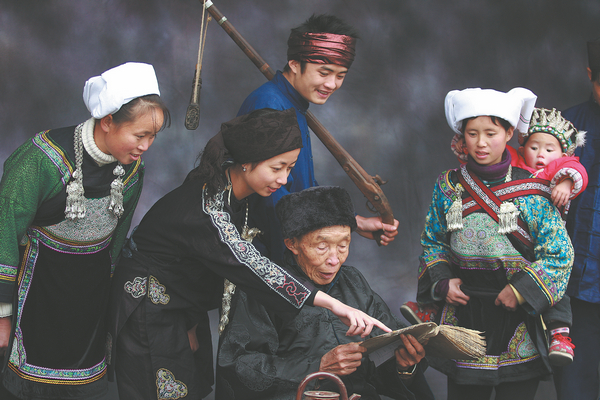

"If we all followed a stereotypical routine, Shuishu would die out gradually, leaving no successors at all. That's why I broke the rule to teach it to those who're willing to learn, so as to preserve the ethnic group culture," he says.
Now, Yang has over a dozen disciples of different ages.
Besides the handwritten scripts, there are also oral accounts of Shuishu passed from masters of one generation to another.
Yang says the most difficult part of learning the language is memorizing oral accounts of Shuishu and this is subject to one's memory. He has mastered about 80 percent of his uncle's knowledge passed on through such oral accounts.
Yang was a teacher at a local primary school and started to teach students Shuishu characters in class in the 1990s, as a way to impart knowledge of the Sui people's language. After retirement in 2015, he was asked by the prefecture's research institute on Shuishu culture to guide others in translating the ancient Shuishu scripts into Chinese.
Yang plans to work with others to record the oral accounts of Shuishu via audios and videos and transcribe them via markings with phonetic symbols.
Ge Mingyi, head of the prefecture archives of Qiannan, says the prefecture has been striving to preserve Shuishu and promote the culture at home and abroad. The prefecture has 466 registered Shuishu masters and about 19,000 original Shuishu books in its archives and museums. The collected books are being digitized and academic seminars on Shuishu are being organized. The prefecture has also made a law to protect Shuishu.